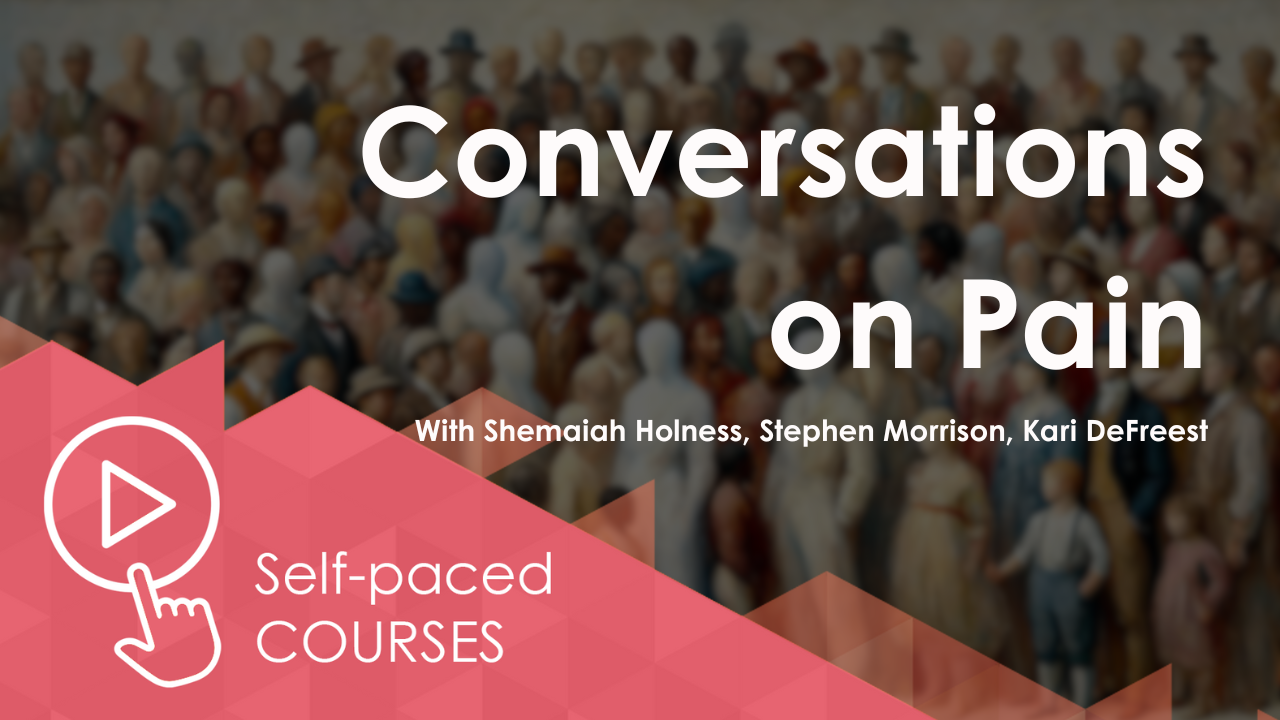
Conversations on Pain with Shemaiah Holness & Stephen Morrison | Kari DeFreest
Due to demand, these insightful Zoom-recorded conversations are now available.
What you'll get:
Culture and Pain: Videos 1 & 2
Recent calls for social justice have forced organizations and professions to look inward upon their core beliefs to determine whether practices are diverse, equitable, and inclusive. This reflection should include organizations and healthcare professionals providing care for those in persistent pain. A 2016 report by the CDC estimated that over 20% of US adults have chronic pain. Of these people, 23% were white, while 33% were either black or LatinX. Educationally, 72.6% of people with chronic pain had less than a bachelor's level of education. Biological, psychological, and social factors influence pain, and while all three contribute to one’s pain experience, there is much less emphasis on the role of social factors in pain perception. In this session, we will explore a deeper understanding of how social factors, race, ethnicity, and culture influence one’s pain experience.
Rurality and Pain: Video 3
Context is one of many factors impacting the development and experience of chronic pain. Persons living in rural and remote areas present with a unique subset of biopsychosocial factors that impact the lived experience of chronic pain. Included in this list of unique biopsychosocial factors are episodic employment, seasonally dependent subsistence and vocational tasks, limited access to health care services, and a strong tendency toward self-sufficiency. Rural health care providers, in turn, are often overworked and have limited treatment resources at their disposal.
Join NOI Group as we explore the impact of rurality on chronic pain experience and treatment.
For full details on refund policies and terms, visit our Policies and Terms & Conditions page HERE.

